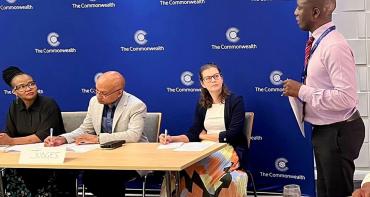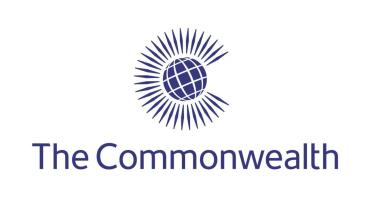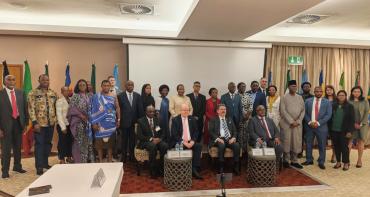Interim Statement on the Mozambique Presidential, Parliamentary and Provincial Assembly Elections - 15 October 2014

The Commonwealth Observer Group has been present in Mozambique since 9 October 2014. During this period, we have met with the Mozambique National Electoral Commission (CNE), representatives of the main political parties, civil society organisations, the media, the police, as well as other international and national observers.
Commonwealth observers were deployed to seven provinces in addition to Maputo City. These include: Cabo Delgado, Gaza, Maputo Province, Nampula, Sofala, Tete and Zambezia. We observed the voting, counting and results aggregation process on Election Day.
This is the Interim Statement of the Group, as it is issued with the process yet to be completed. The critical vote tabulation and results processes are still ongoing. We will issue a final report containing our conclusions on the entire process at a later stage.
Our mandate is to observe the organisation and conduct of the Presidential, Parliamentary and Provincial Assembly Elections, in accordance with relevant Mozambique electoral laws, and to consider the various factors impinging upon the credibility of the electoral process as a whole.
Key Findings
The campaign period was relatively calm and peaceful overall and the fundamental rights of candidates and political parties to assemble and campaign were broadly observed. Reported incidents of violence in Gaza and Nampula provinces were of concern; however these incidents were isolated and not typical of the campaign period.
Our initial assessment of polling day is that, for the most part, voting was conducted in a peaceful manner; and our observers reported positively on the relative transparency of the voting and counting processes and that the polling environment was generally conducive to the free expression of will by the electorate.
The Group was impressed by the enthusiasm and determination demonstrated by the people of Mozambique to exercise their franchise.
The Commonwealth Observer Group would like to commend the staff of the CNE, Technical Secretariat for Electoral Administration (STAE) and polling officials, the Police, domestic and other international observers for the dedication and commitment they displayed during these elections.
At polling stations we visited, the Group noted that National Electoral Commission staff were engaged with relevant stakeholders, and facilitated transparent interactions with voters, observers and other relevant stakeholders.
Polling day generally reflected prescribed procedures and polling stations by and large opened on time. In cases where polling stations opened late, we are informed that voting was adequately extended as required; though some observers noted that delays may have led some voters to abandon their attempts to vote.
In our observations, polling staff were, on the whole, well-trained and carried out procedures in a transparent manner. Where there was uncertainty among polling staff, we observed that they sought consensus to arrive at decisions.
Despite the disorderly nature of some queues due to, among other things, tight spaces or uneven/sloping terrain outside some polling stations, voters were generally not prevented from casting their ballots. By and large, the process was conducted in an orderly manner inside the polling stations. The slow movement of queues was generally as a result of the meticulous process in which polling staff provided voters with detailed explanations and guidance on the voting procedure.
The polling stations observed generally had adequate materials to facilitate voting and ensured that the voting environment and layout respected the secrecy of the ballot. We are aware however that there were polling stations which did not receive voting materials on time and we await further reports to assess the significance of these reported shortcomings.
We noted that political party agents were present at most polling stations although not all parties were represented. Recognising the current Mozambican political context, the Group is of the view that this helped to foster an environment of trust and transparency at polling stations.
In addition to the participation of older and disabled voters, we were encouraged by the large numbers of women and youth who participated in the electoral process, not only as voters, but also as polling staff and party agents. We however noted the lack of adequate facilities to cater for the needs of disabled and elderly voters.
At most stations observed, polls closed on or close to the prescribed time (with some notable exceptions) and the counting process commenced promptly in the polling stations we observed. The vote-counting and tabulation procedure was conducted in a fastidious and transparent manner by polling officials in the stations the Group observed. Counting was manual, generally slow and went on into the early hours of the morning due mainly to exhaustion by polling officials and cumbersome procedures intended to preserve transparency.
We urge the CNE to explore ways of making the counting process in future elections more streamlined, whilst ensuring accuracy and transparency. We will also urge the CNE to provide for adequate lighting in future processes as there were some cases where voting and counting were conducted under very poor and unstable lighting conditions. Inadequate lighting, in some places, contributed to an atmosphere of suspicion and fuelled fears of potential vote-rigging. This engendered heightened tensions in some areas.
The Group noted with concern the incident where ballot papers were reportedly stolen while being transported to their designated Province in the week preceding the elections. We were satisfied with the reassurance we received from the National Electoral Commission and the Police in relation to this incident. In this regard, the Group intends to offer recommendations on the future transportation of election-related materials in its Final Report.
We have heard some allegations of serious irregularities at some polling stations, such as the interruption of voting, lack of registration booklets, ballot boxes and ballot papers, switching locations of polling stations without warning, theft of ballot papers and ballot stuffing. We call upon those making these claims to file formal complaints as prescribed in the electoral laws, and for the relevant institutions to investigate and pronounce on these allegations.
Though the voter registration process was quite successful (89.1% of estimated population of voting age was registered), voter turn-out appeared to be much less at polling stations observed. There is a need to consider deepening civic and voter education prior to future elections. Enhanced voter education would also go a long way to reduce the need for polling officials to educate voters on Election Day, an aspect which made the process more cumbersome and rather slow.
The Group wishes to use this opportunity to further commend the efforts of civil society organisations in providing support and oversight in the pre-election, election, and immediate post-election phases. We are of the considered view that the sustained input of these civil society groups contributed positively to the conduct of the polls.
The Group was encouraged to find a vibrant media landscape with many outlets across print, television, radio and online providing extensive coverage of the elections. Public media were found to enjoy greater influence than private and independent media. Some stakeholders expressed concern about the potential for bias or self-censorship in public media. One main complaint was that the state broadcaster devoted a disproportionate level of coverage to the incumbent ruling party. Nonetheless, journalists were generally able to operate freely throughout the pre-campaign and campaign periods.
The Group met and had discussions with the three Presidential Candidates and were assured by each of them that they would accept the results of a credible electoral process. We took these assurances as a good gesture, conveyed in good faith and as a firm demonstration of the commitment of all stakeholders to a democratic and peaceful process. This commitment had been enunciated in the laudable 5 September 2014 Peace Agreement between the Government and RENAMO. The signing of this peace agreement helped to create an atmosphere of security and peace ahead of the polls.
We believe the National Electoral Commission deserves commendation for conducting an election which demanded significant logistical efforts under very challenging circumstances. We were encouraged by the CNE’s inclusive, consensus-based and pragmatic approach to addressing challenges, as well as its proactive communication with key stakeholders. This approach is certainly helpful in allaying concerns and preventing undue escalation of tensions that come with an electoral process.
We are pleased to note that measures have been taken to establish election-related conflict prevention and resolution mechanisms to assist with addressing electoral disputes.
Based on our observation and exchanges with a broad range of stakeholders since the Group’s arrival, our preliminary conclusion is that the elections were generally peaceful and relatively well conducted. The incidents and shortfalls observed to date by members of the Group are not of a magnitude significant enough to put in question the credibility of the outcome.
There is certainly room for improvement and this shall be reflected in the recommendations which the Group will make in its Final Report as it re-convenes later today in Maputo for further deliberations. The Group’s Report will be submitted in due course to the Secretary-General of the Commonwealth who would subsequently share it with relevant stakeholders before making it public.
Notes for Editors
The Commonwealth Observer Group was constituted at the invitation of the National Electoral Commission of Mozambique.
The Group comprises 14 eminent persons drawn from across the different regions of the Commonwealth, a voluntary association of 53 independent member countries. The Group includes electoral experts, current and former politicians and diplomats, and civil society and media experts.
#Mozambiqueelections: statement by Hubert Ingraham, Chair of #Commonwealth observer group, ex-PM #Bahamas http://t.co/8s8scWzGmy
— The Commonwealth (@commonwealthsec) October 17, 2014



